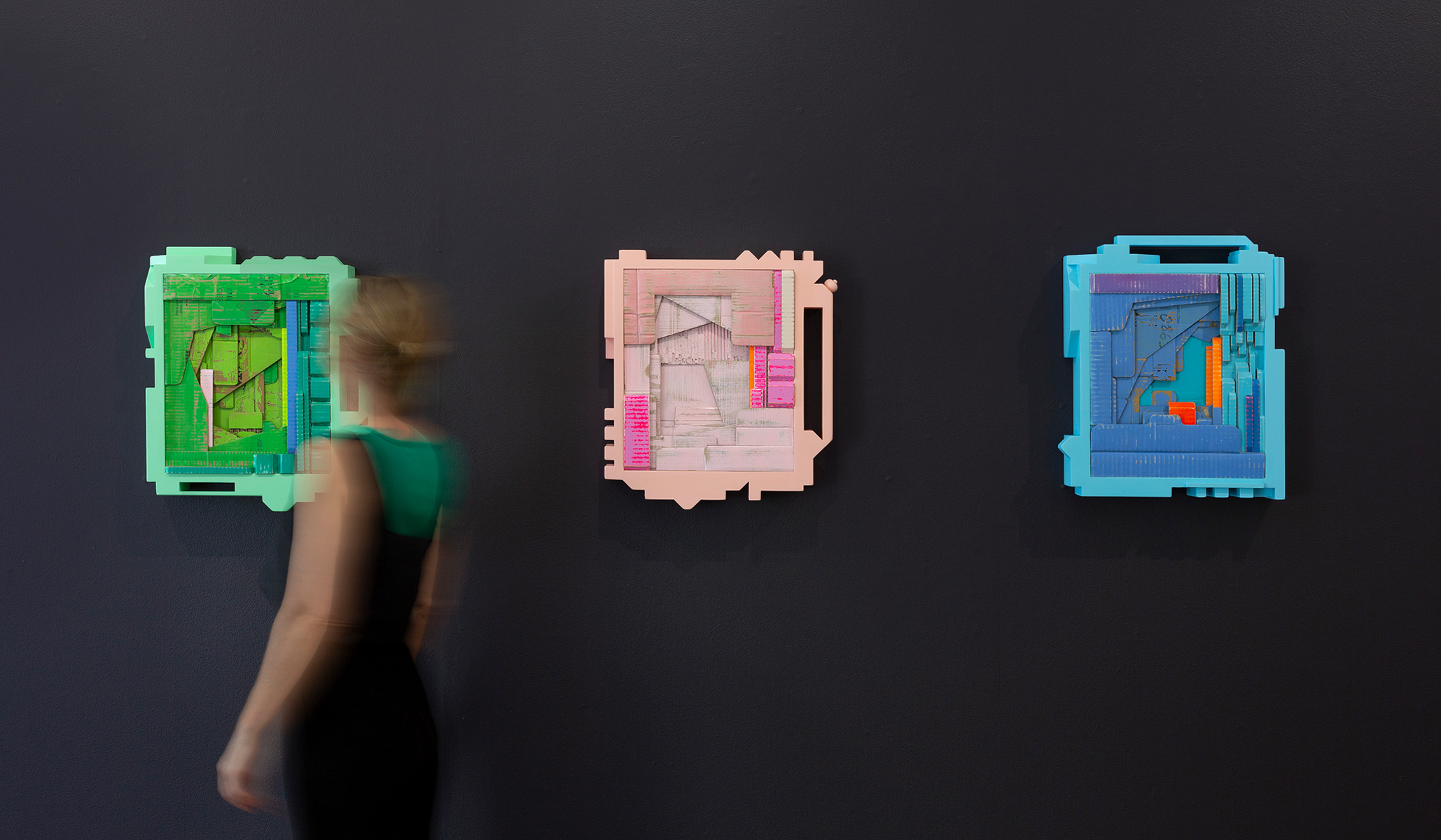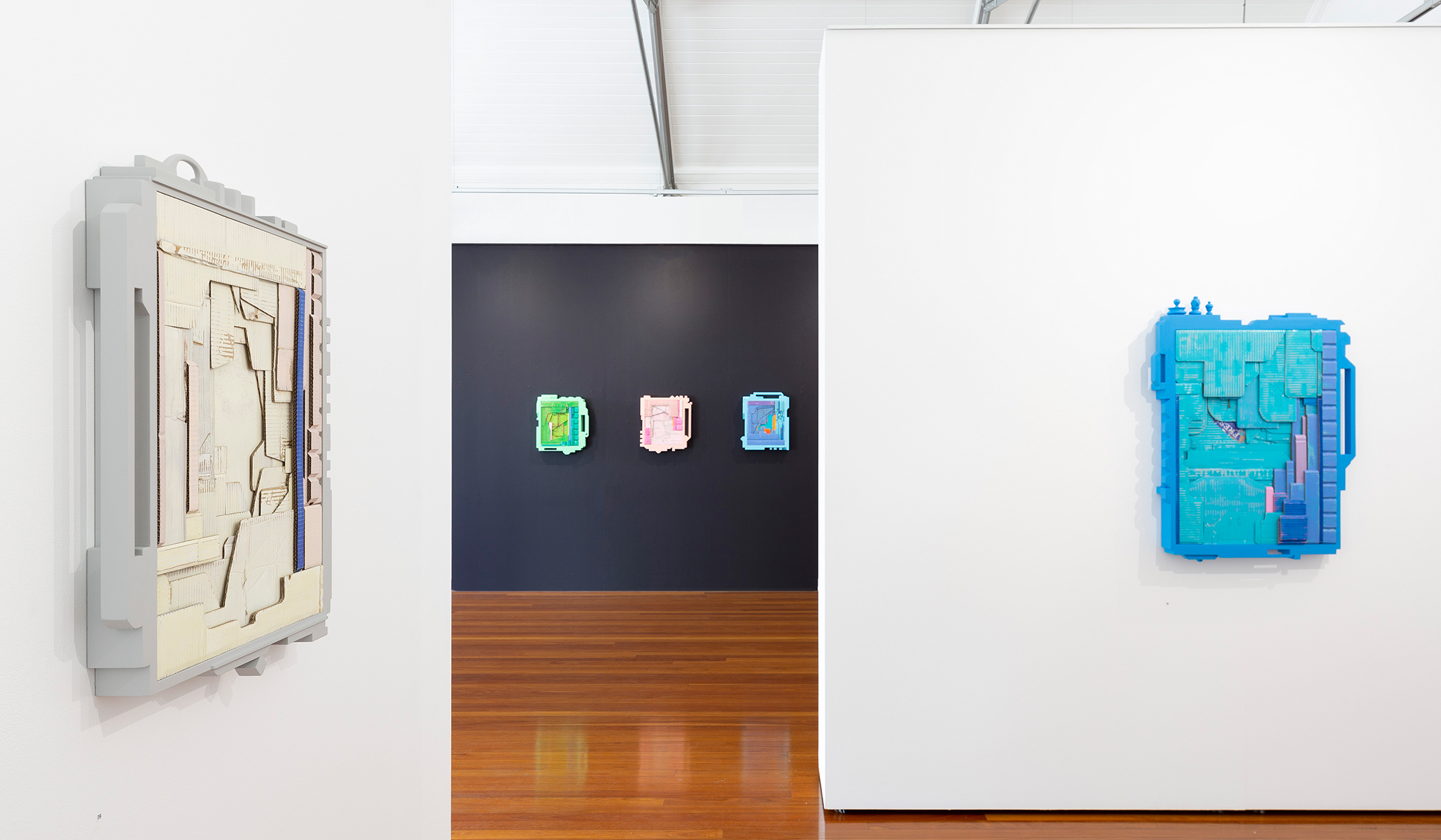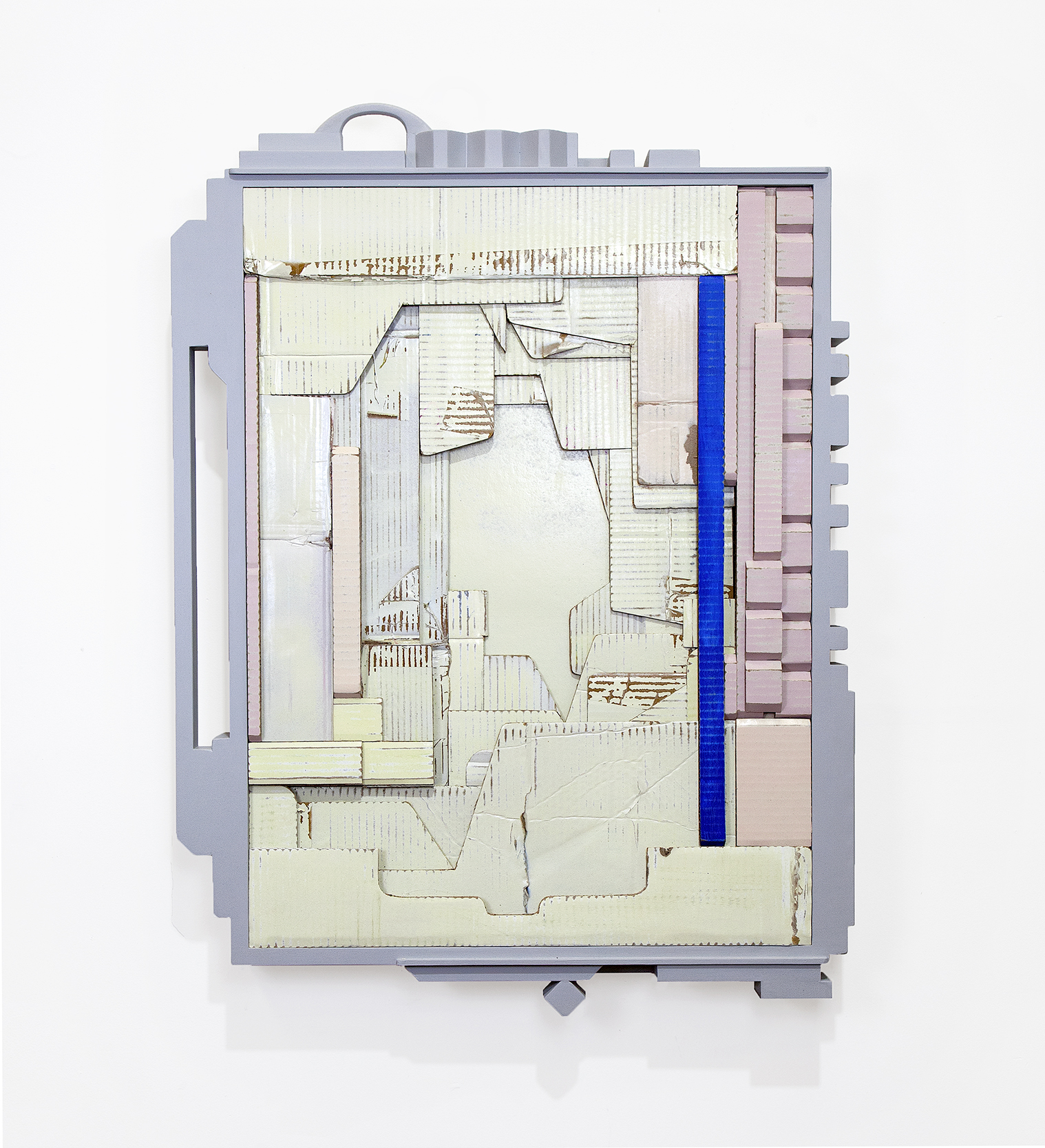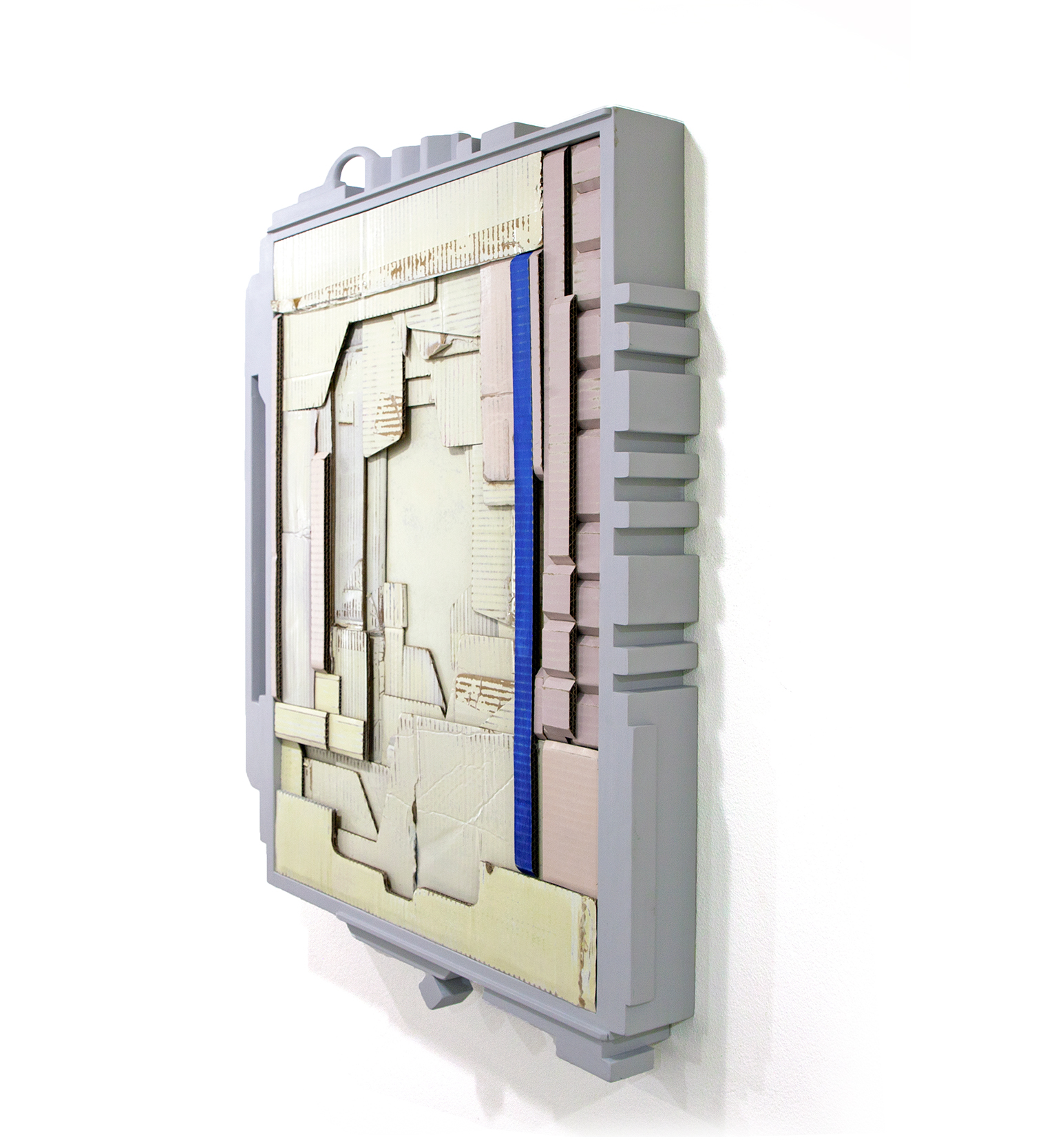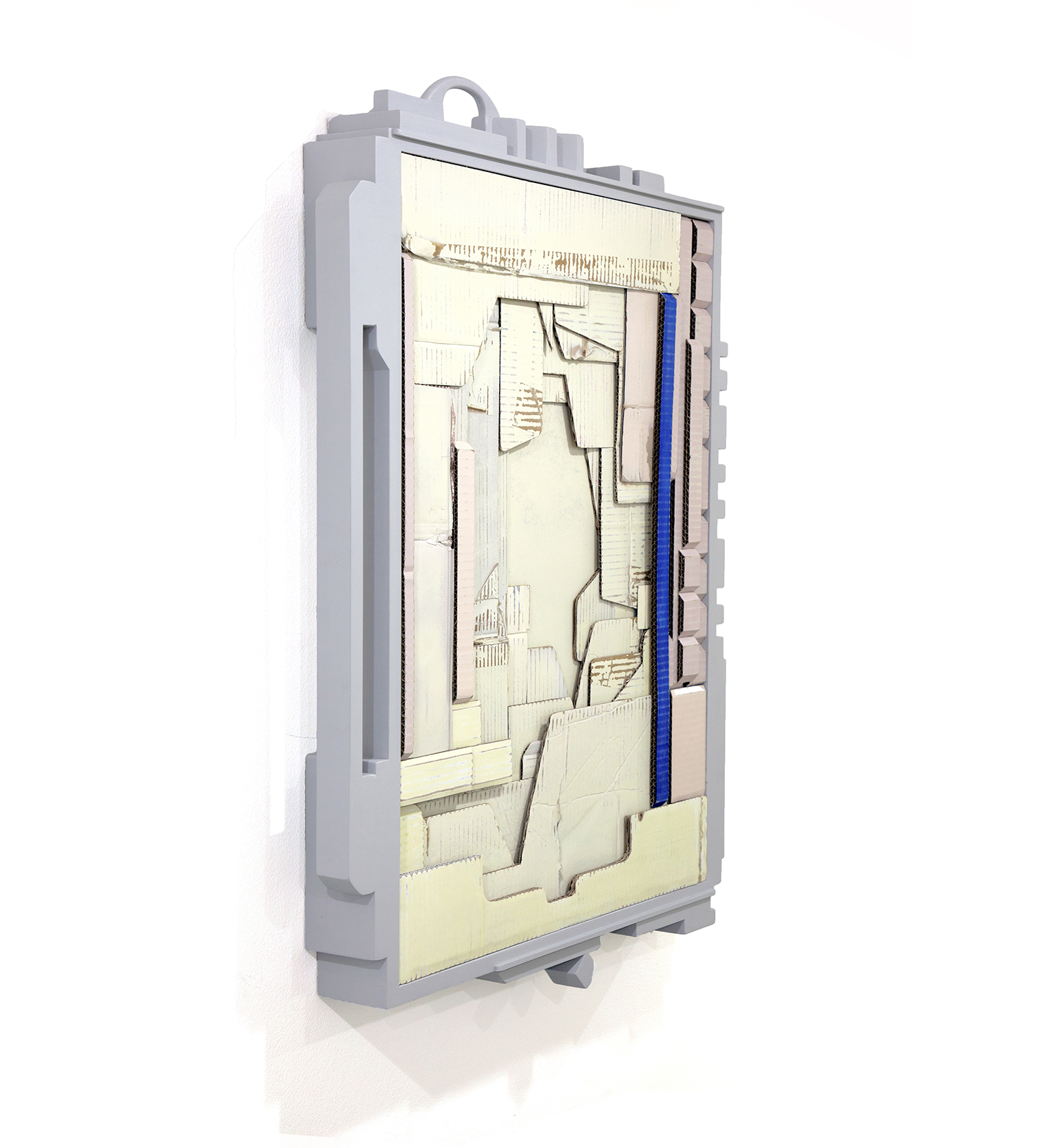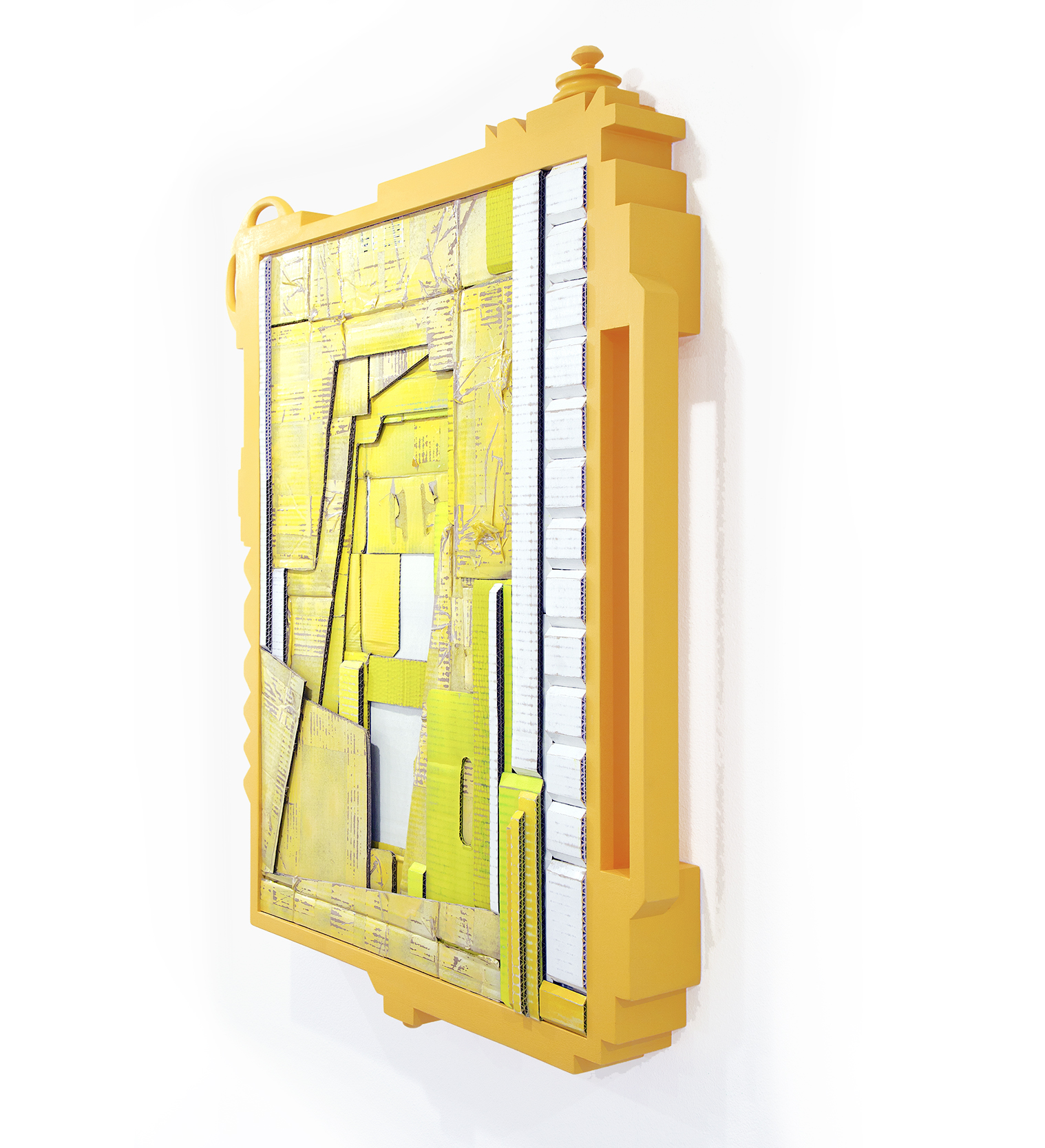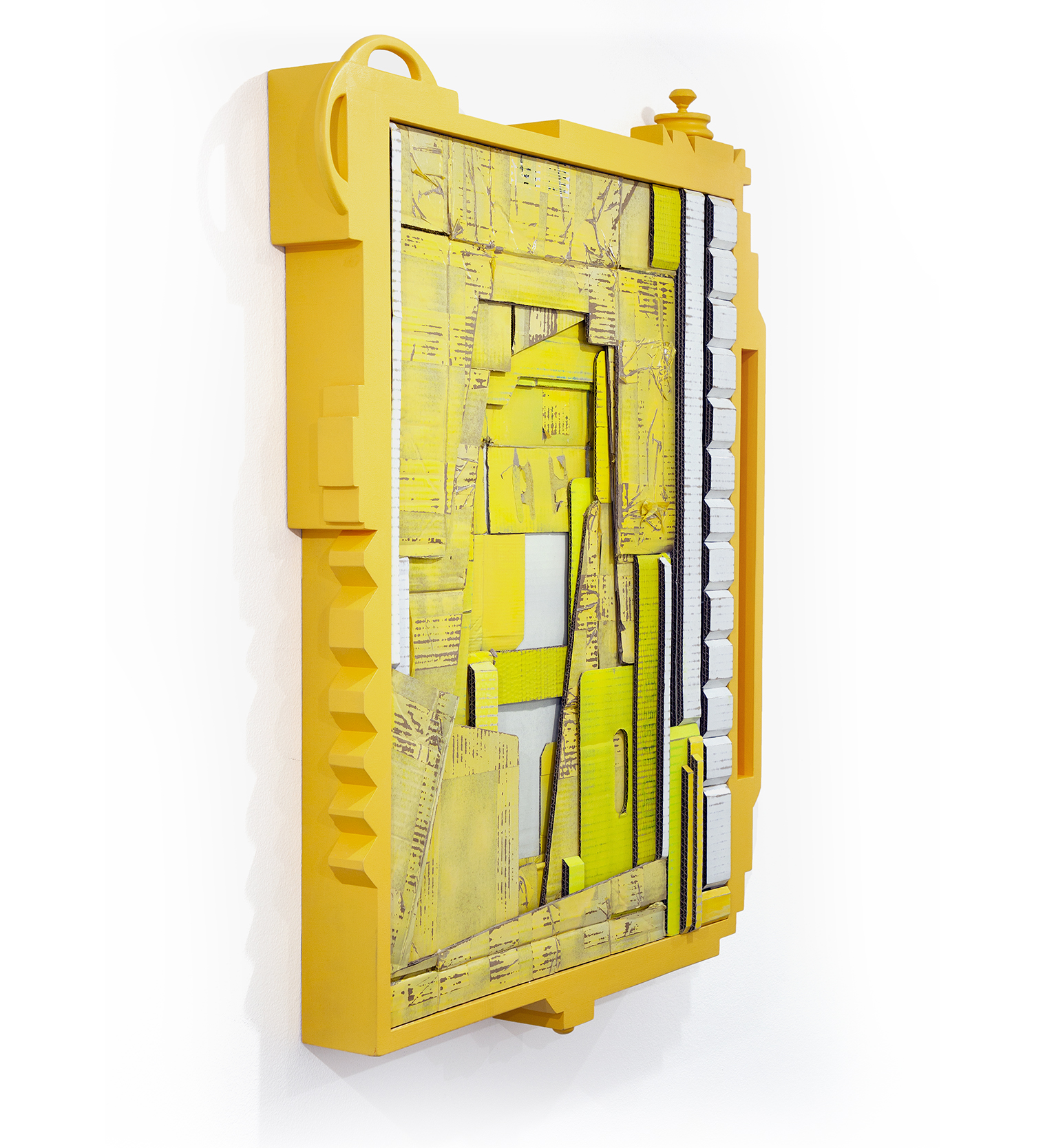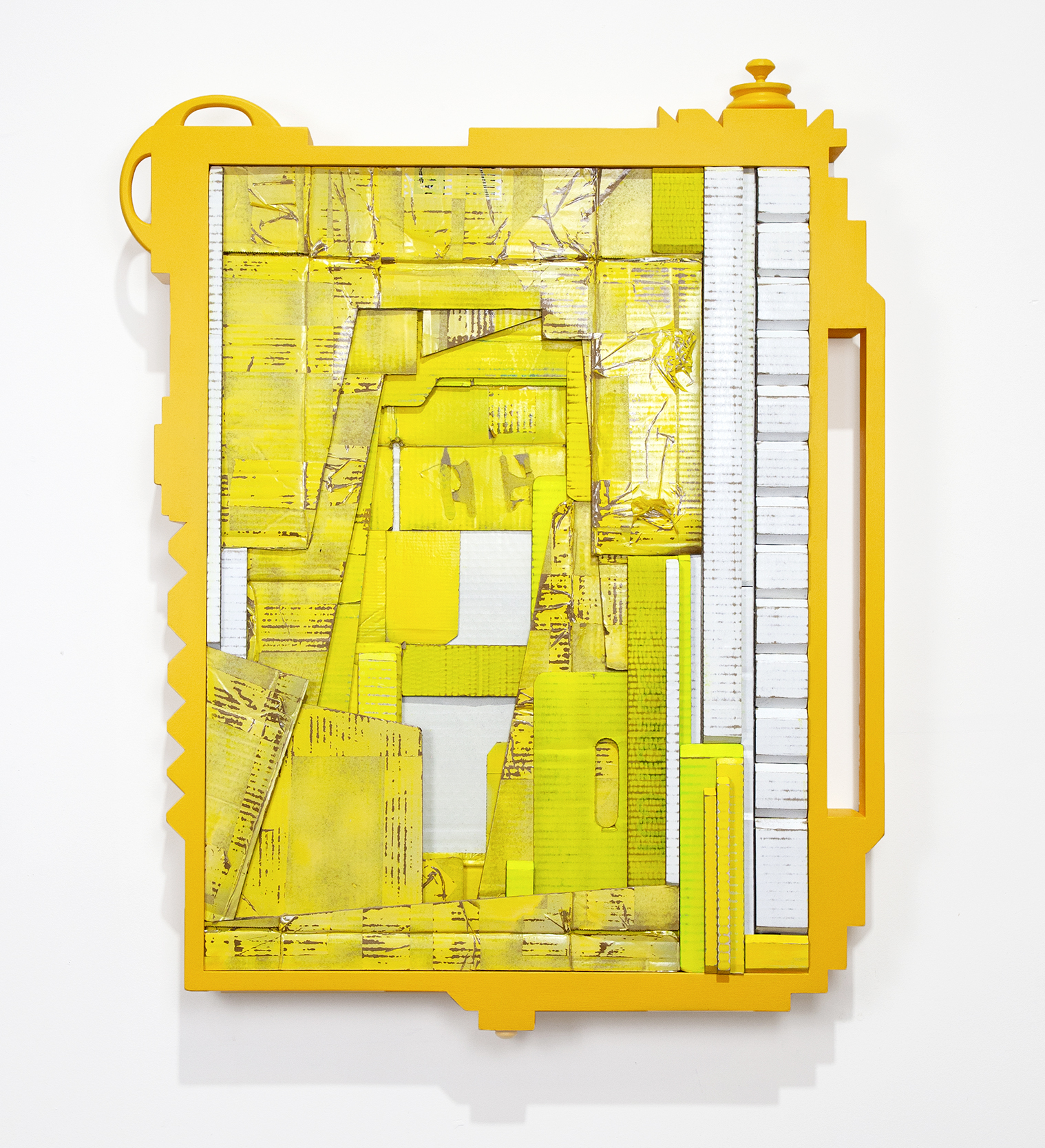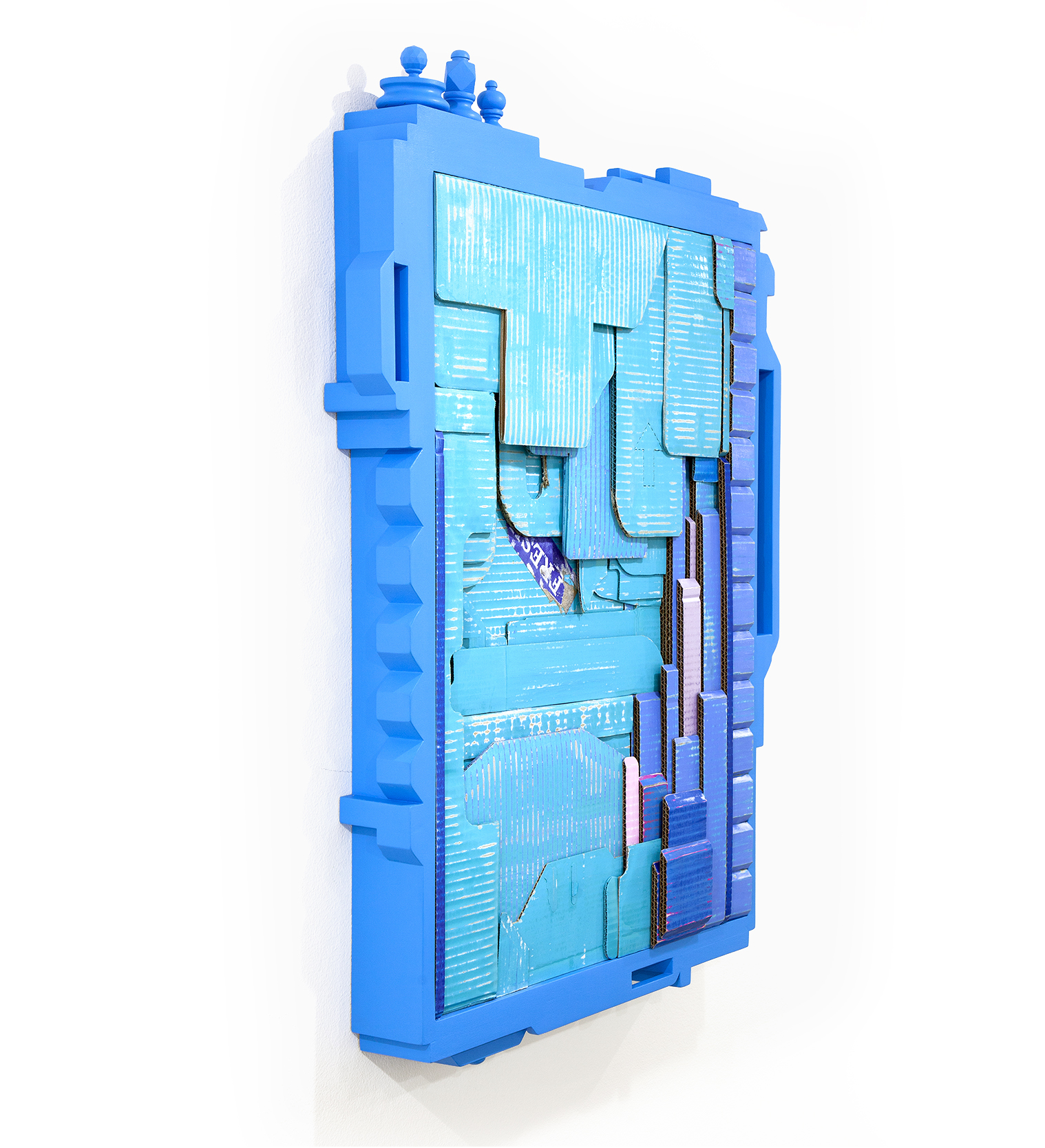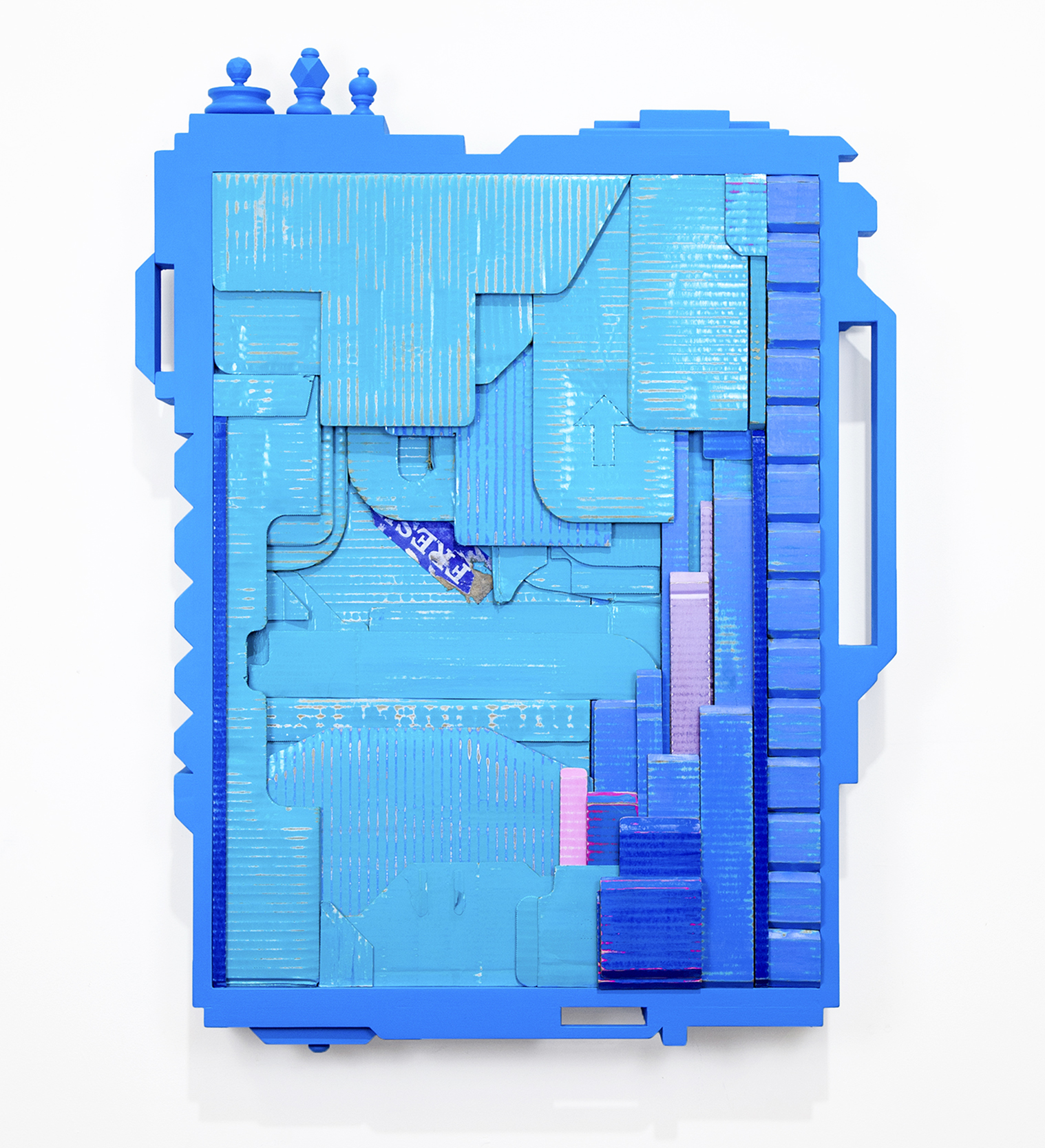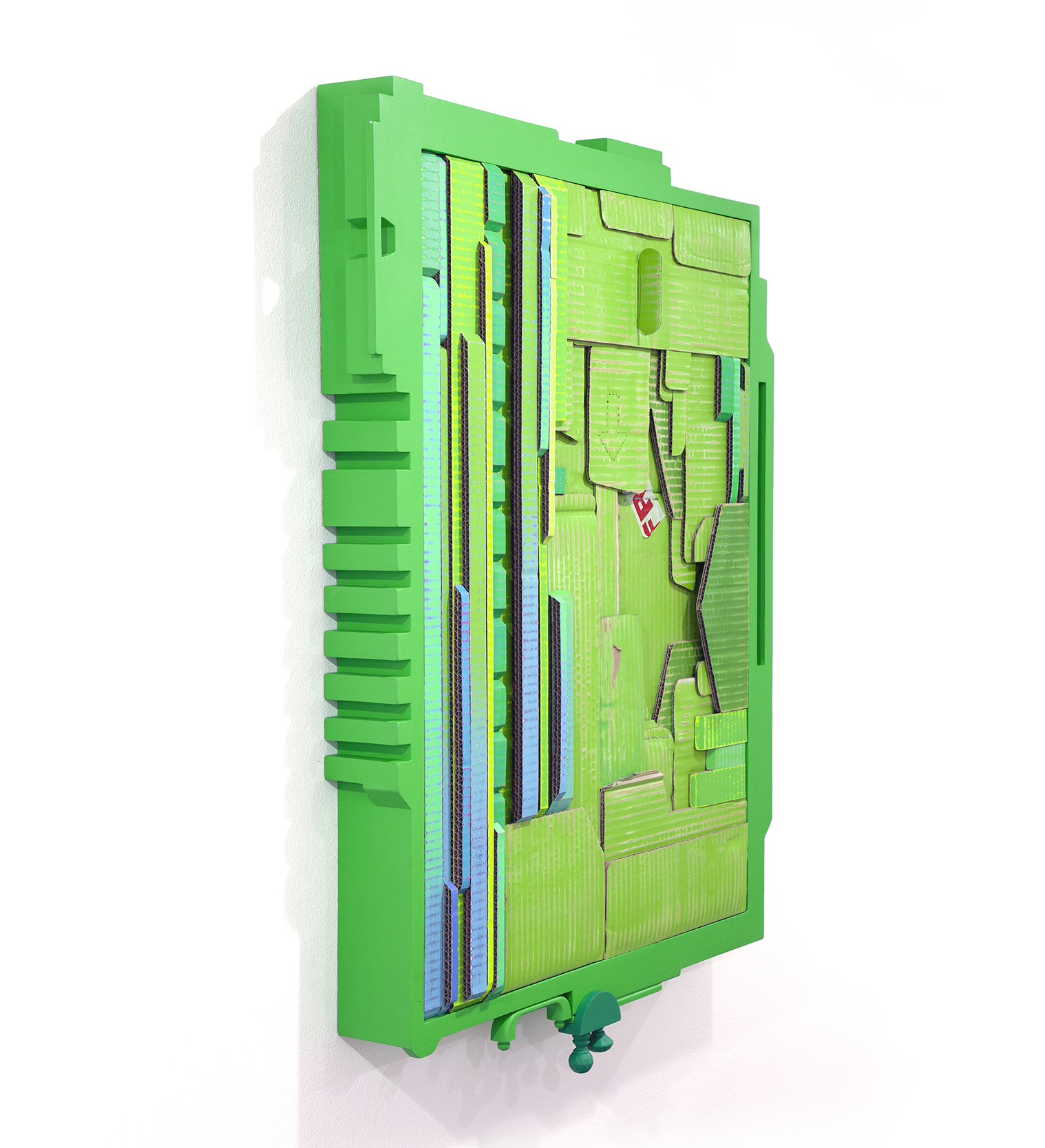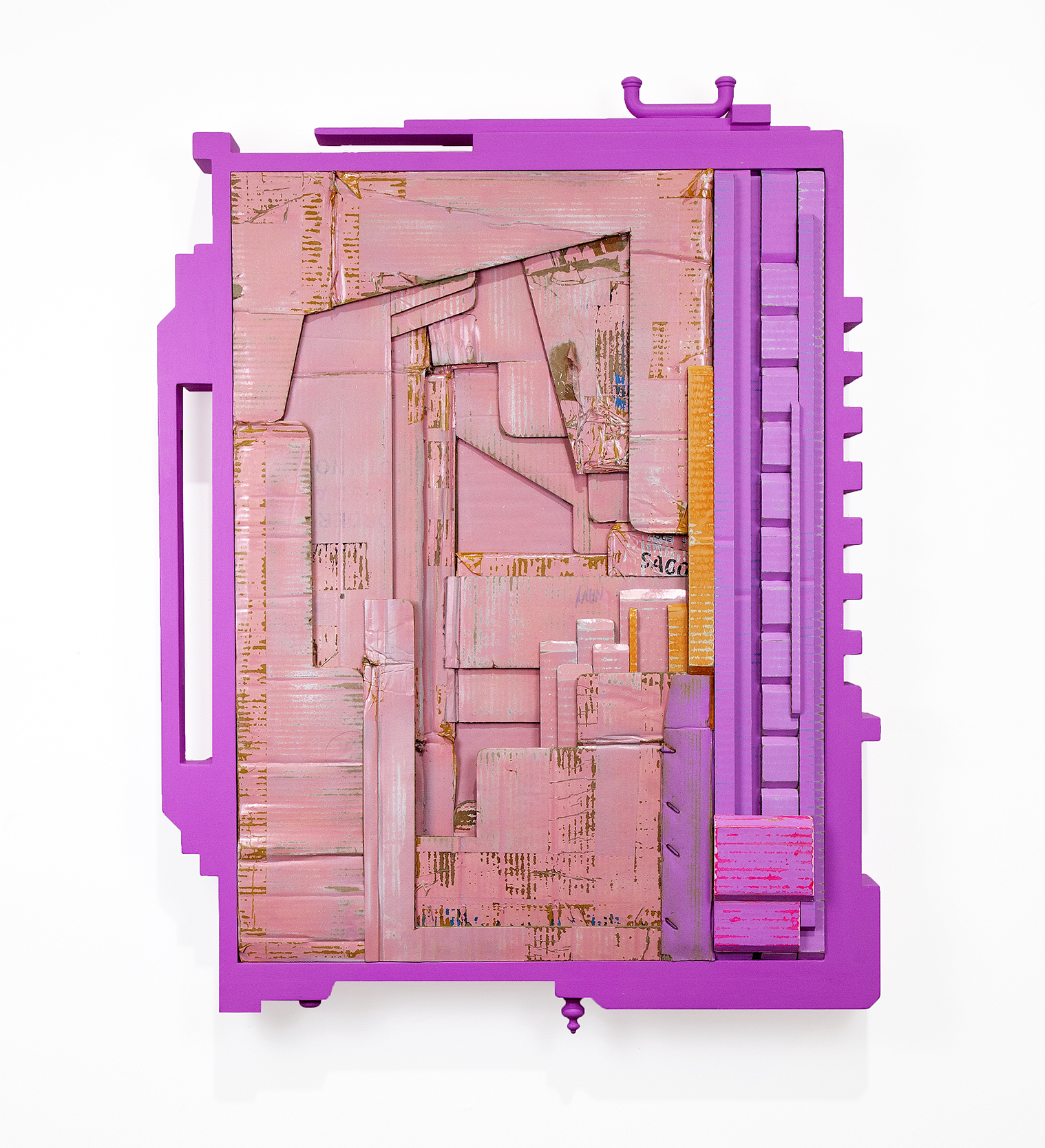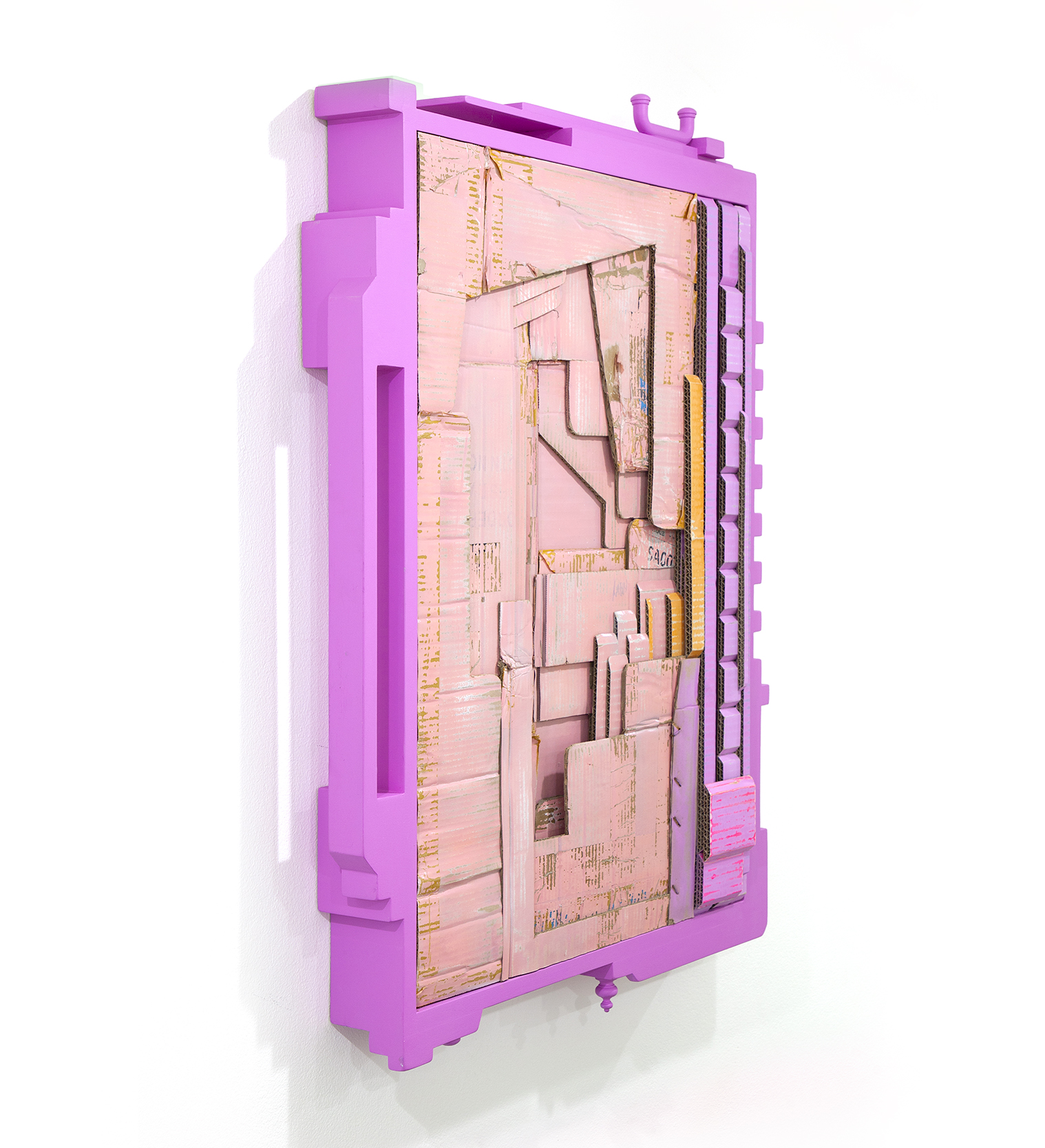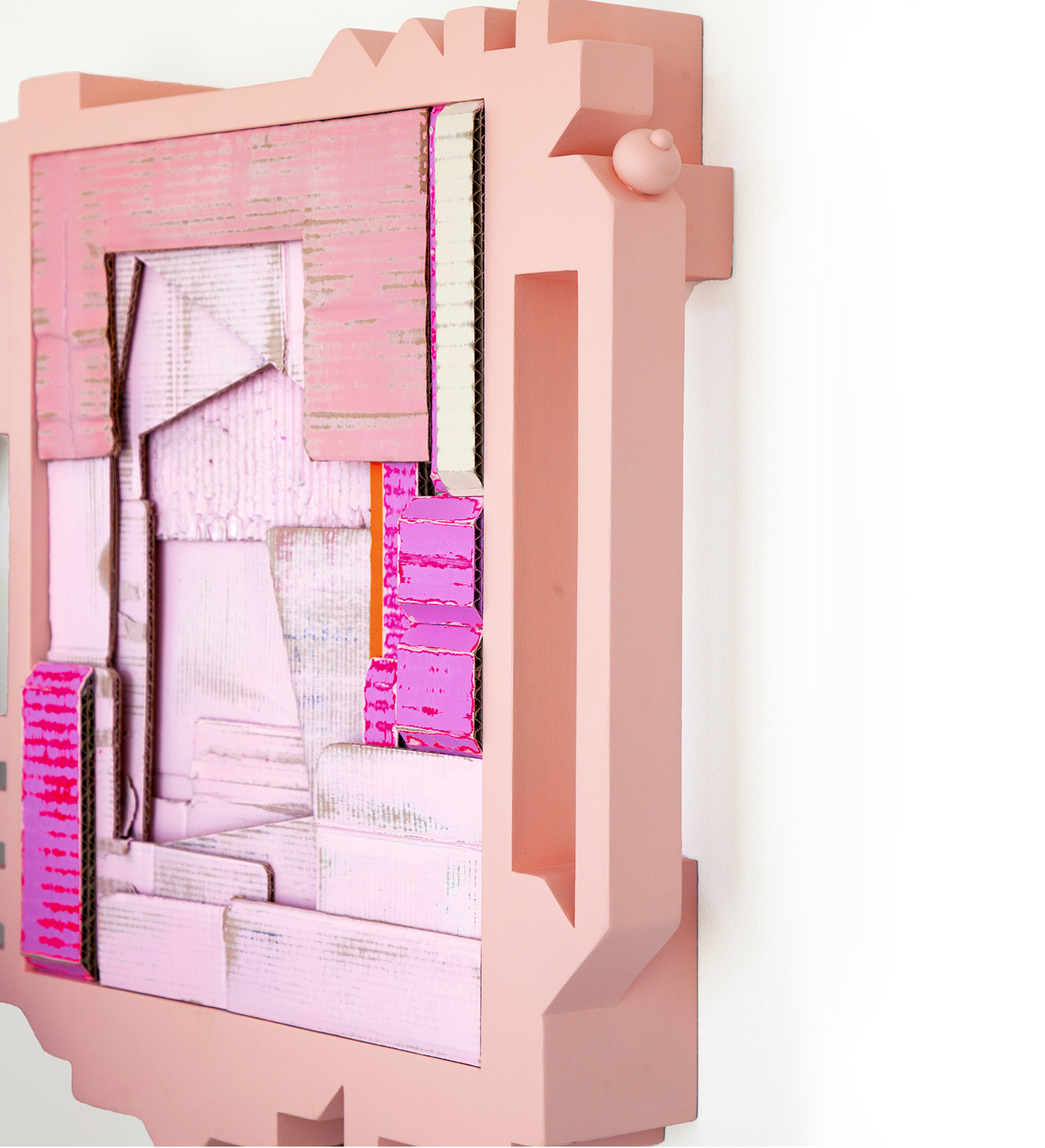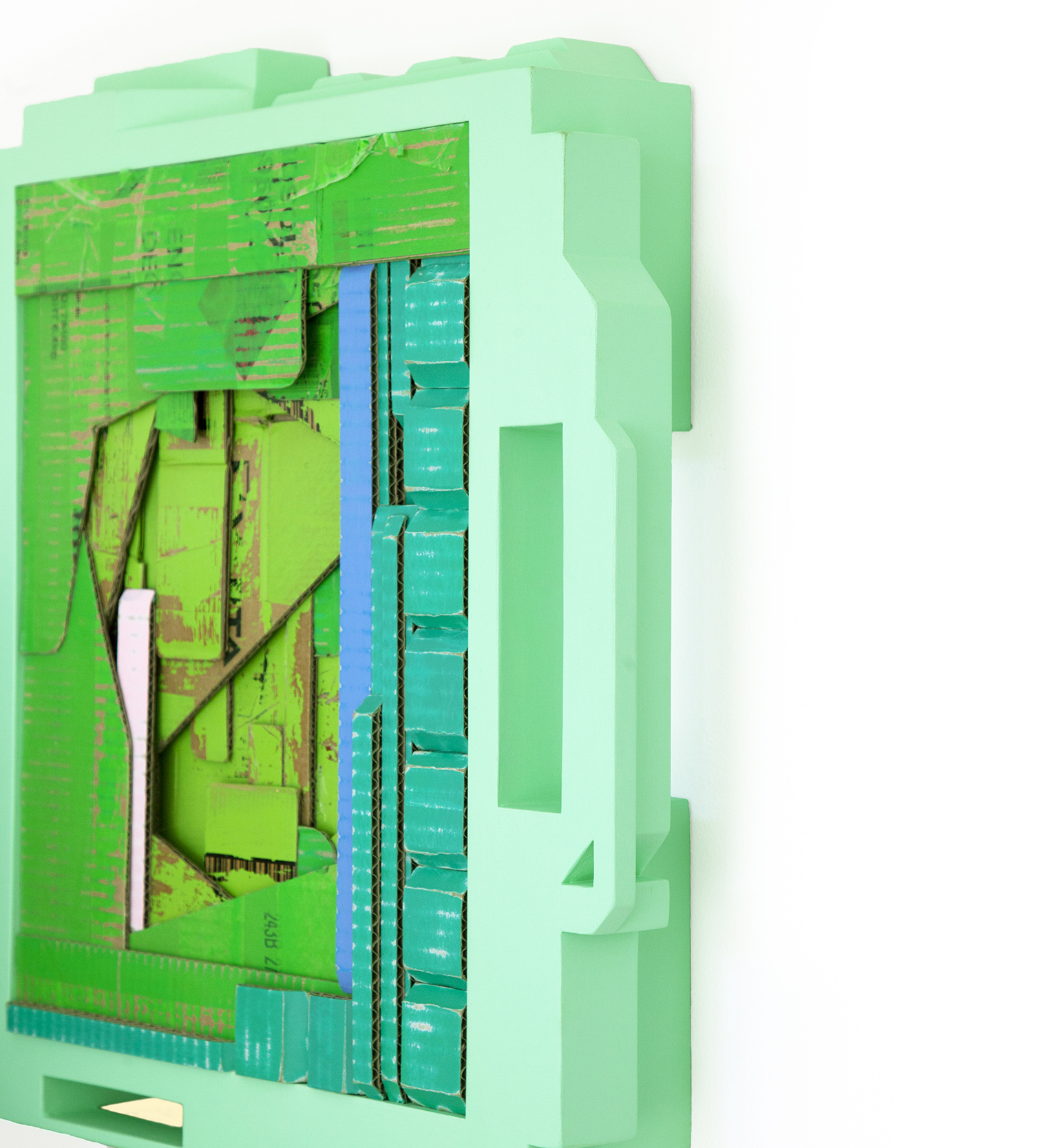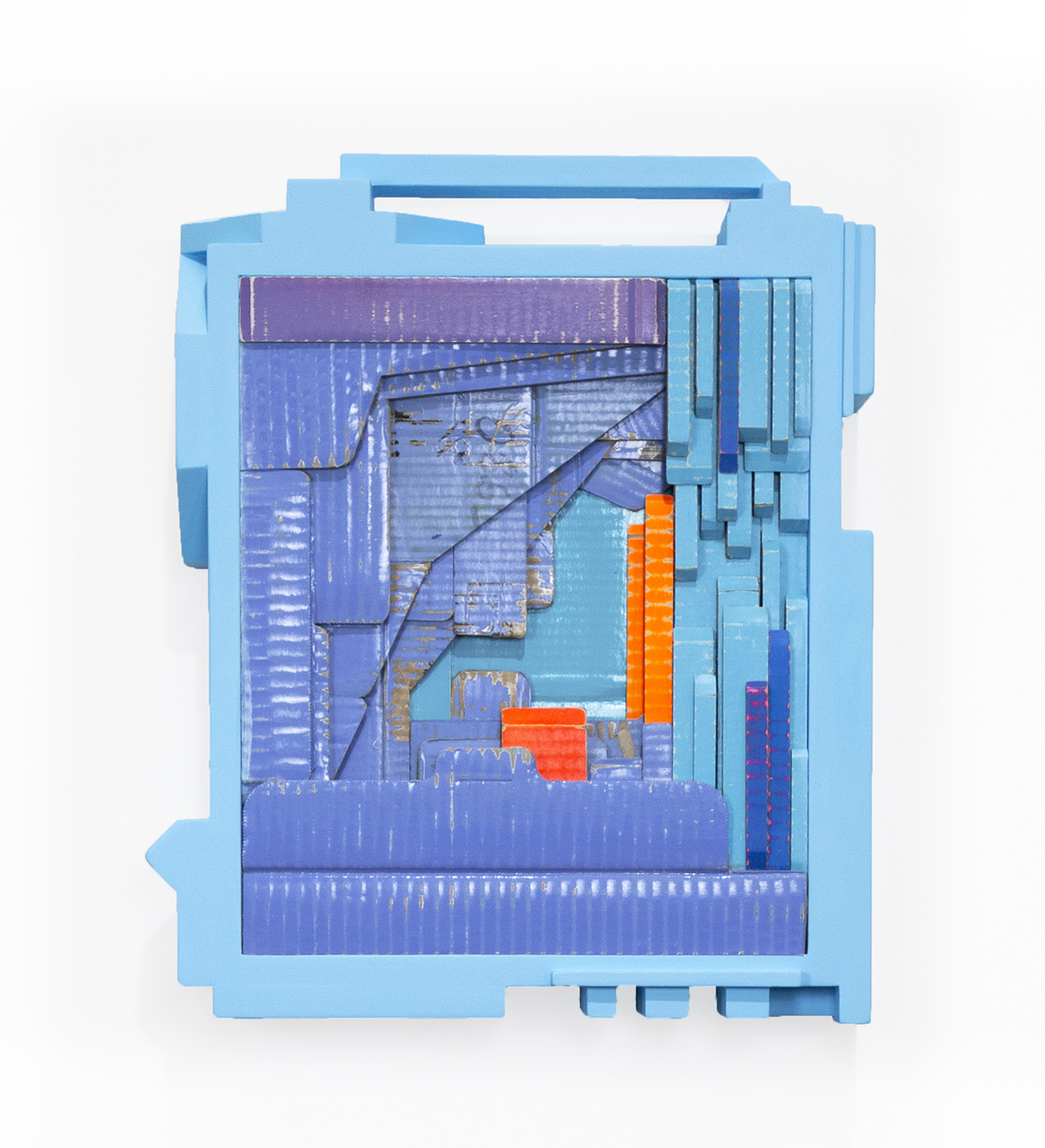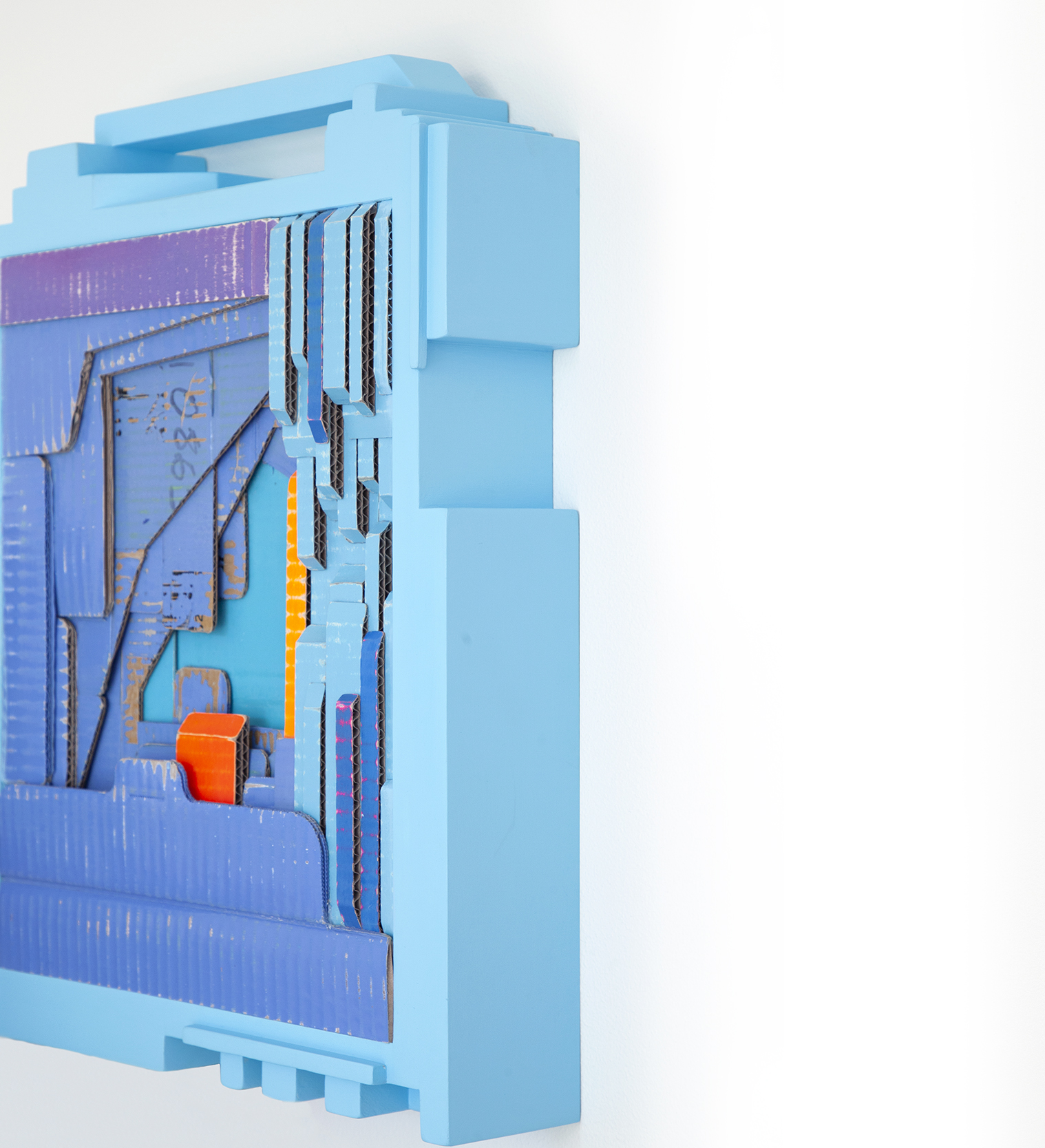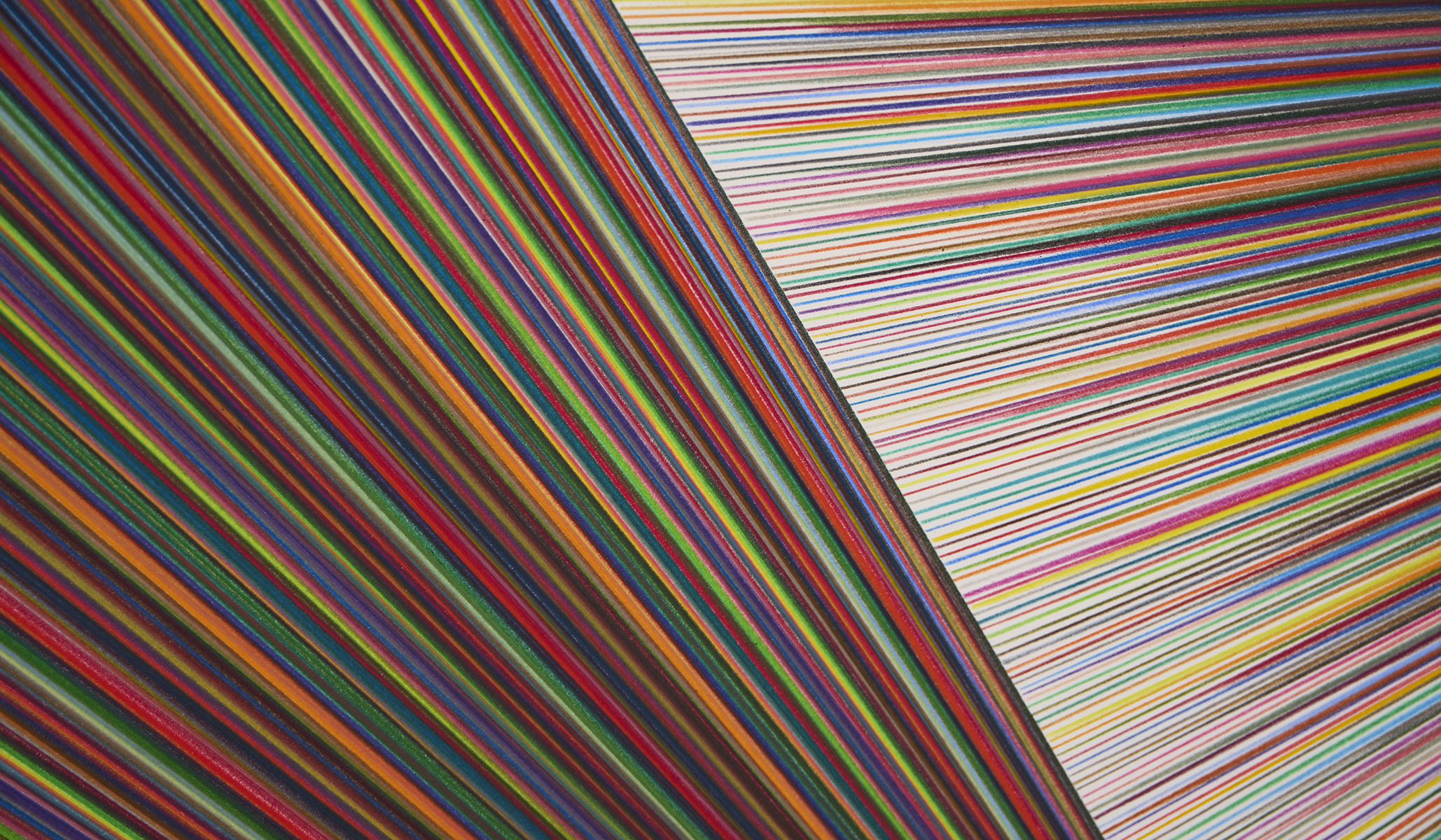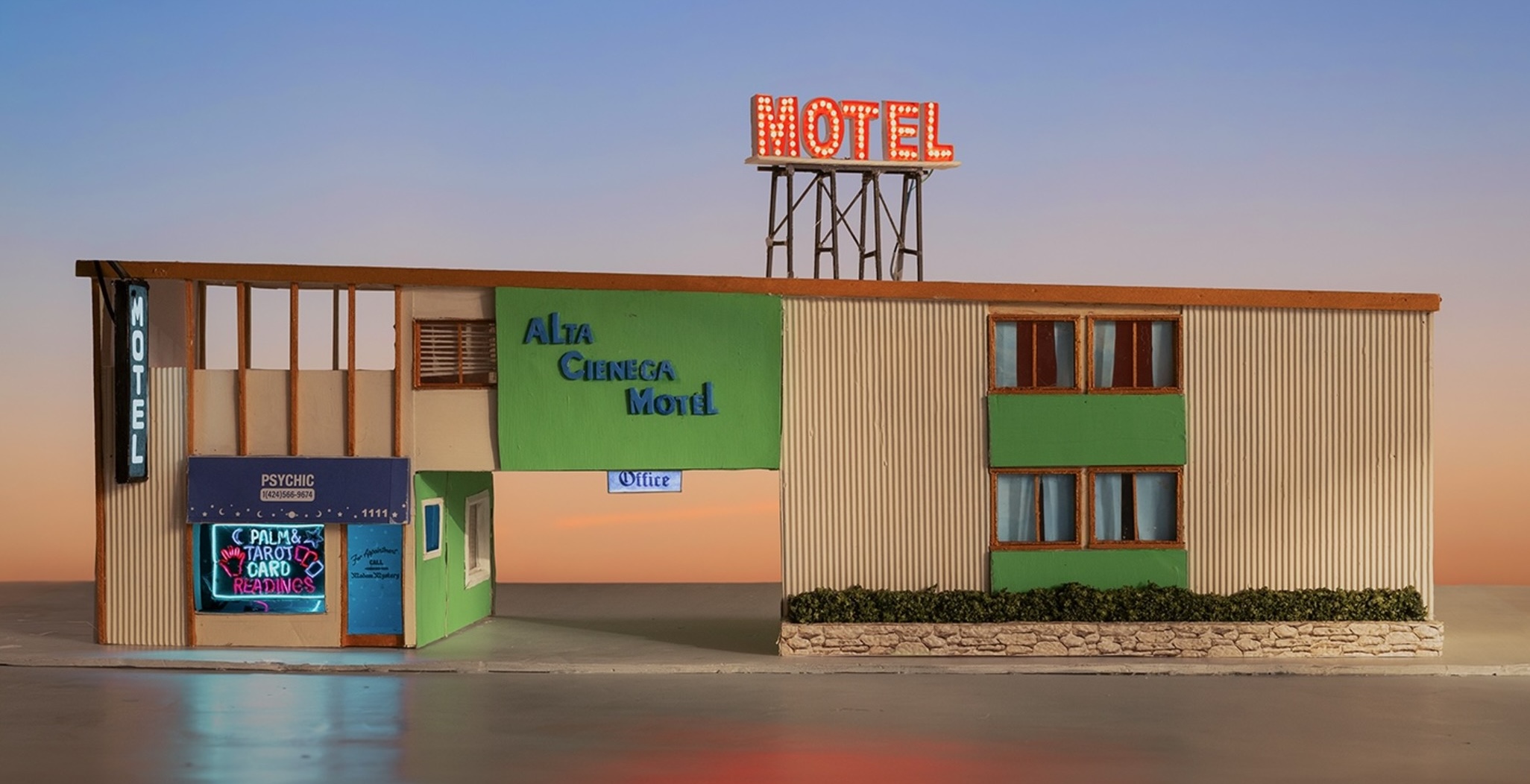Exhibition Opening: Saturday 4 March, 2 – 4 pm.
To view and purchase artworks from this series
scroll to the end of this webpage or visit the gallery between 2 March – 1 April 2023.
This March, Artereal Gallery is excited to present a solo exhibition of new works by Patrizia Biondi which document the evolution and elevation of the artist’s practice in recent times.
For the past five years, Patrizia Biondi has developed an international reputation for creating intricate, quasi-architectural constructions, built out of salvaged cardboard, which hover somewhere between traditional understandings of painting and sculpture. Having mounted exceedingly well-received shows in Australia, New Zealand, Italy and the USA, Biondi has cultivated a following of collectors who appreciate that underlying each of these seemingly abstract works is an avid interest in contemporary socio-political issues, with a particular emphasis on the relationship between the rapidly changing nature of society and the establishment of global finance as culture.
With this latest body of work, we see Biondi once again transmuting discarded cardboard into artworks that now feel firmly situated within the history of painting. With clear nods to art historical movements such as Constructivism, iconic modernist painters such as Rothko and Robert Delauney, as well as designer Ettore Sottsass (of Memphis Group fame), Biondi has clearly drawn inspiration from a panoply of 20th Century influences.
With the introduction of elaborate wooden frames, these new works feel contained and restrained in a way that previous works – with their grungy edges and explosively dynamic forms – were not. Highly polished and elaborately detailed, the wooden frames that set this series apart from the artist’s earlier works, are nonetheless consistent with her ongoing fascination with repurposed materials, integrating found wooden door handles and doorknobs alongside painted crystal doorknobs. Playing with a colour palette in which only one or two colours are highlighted and celebrated, Biondi hones in on the emotive nuances which can be achieved when focusing on subtlety of colour and texture as much as form.
With her first major public artwork also currently under construction, Patrizia Biondi is an artist to watch.
Rhianna Melhem
Curator
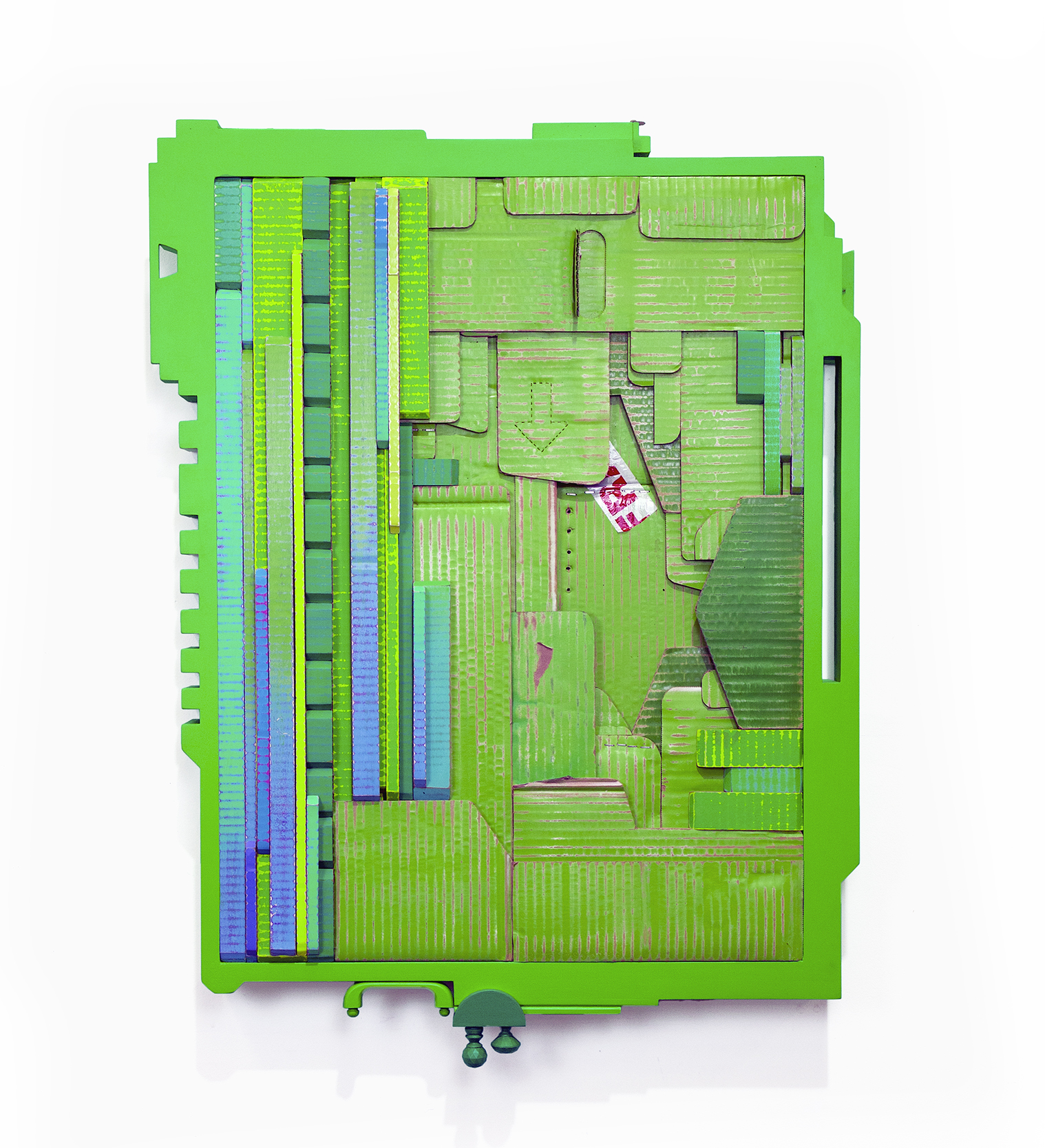
“Discourses on important global issues such as reversing climate change or redistributing wealth revolve around the assumption that humans can mobilise solutions by the sheer act of exercising their free will. However, this notion of free will is debatable. It can be argued that choices are exercised within a deterministic paradigm. We believe we have agency insofar as we consciously select from a range of options, but our choices will be inevitably dictated by a plethora of predetermining factors, including cultural, psychological, social and political conditions. Essentially, it can be argued that the notion that we have free will is illusory, even contradictory.
Much of contemporary life harbours paradox and illusion. We value our privacy, yet we share much of our lives through virtual platforms and digital information collection. We prize our personal and social freedoms but we do not question how corporate supremacy undermines true democracy. We cherish and preserve old buildings, yet we unerringly fail to treasure and protect the architecture of our life-supporting ecosystems. We send probes into space to explore the possibility of life on other planets but we make little effort to arrange a sustainable future on earth. We want to consume less without giving up comfort and convenience. We want to reduce carbon emissions but do not want to renounce the enjoyment of travel. We accept the ugliness of war though we persistently crave the presence of beauty in our life.
The realm of art is no stranger to contradiction, either. Some of the most influential artists and designers throughout modernity produced artistic oeuvre of great irony. The readymades of Marcel Duchamp mocked bourgeois aesthetic elitism. Yet, ironically, they heralded a new artistic era. Ettore Sottsass critiqued consumerism. Yet, he reshaped the conversation surrounding the aesthetic of consumer products as he transformed functional objects such as office furniture, electronic equipment, and typewriters into colourful objects of beauty and playfulness. Mark Rothko limited his use of formalist elements to saturated colour. Yet, his artworks showed us the immense life force of art and bridged the gap between the physical and the spiritual. Robert Rauschenberg recovered materials that people discarded as trash and repurposed them as collectible art objects.
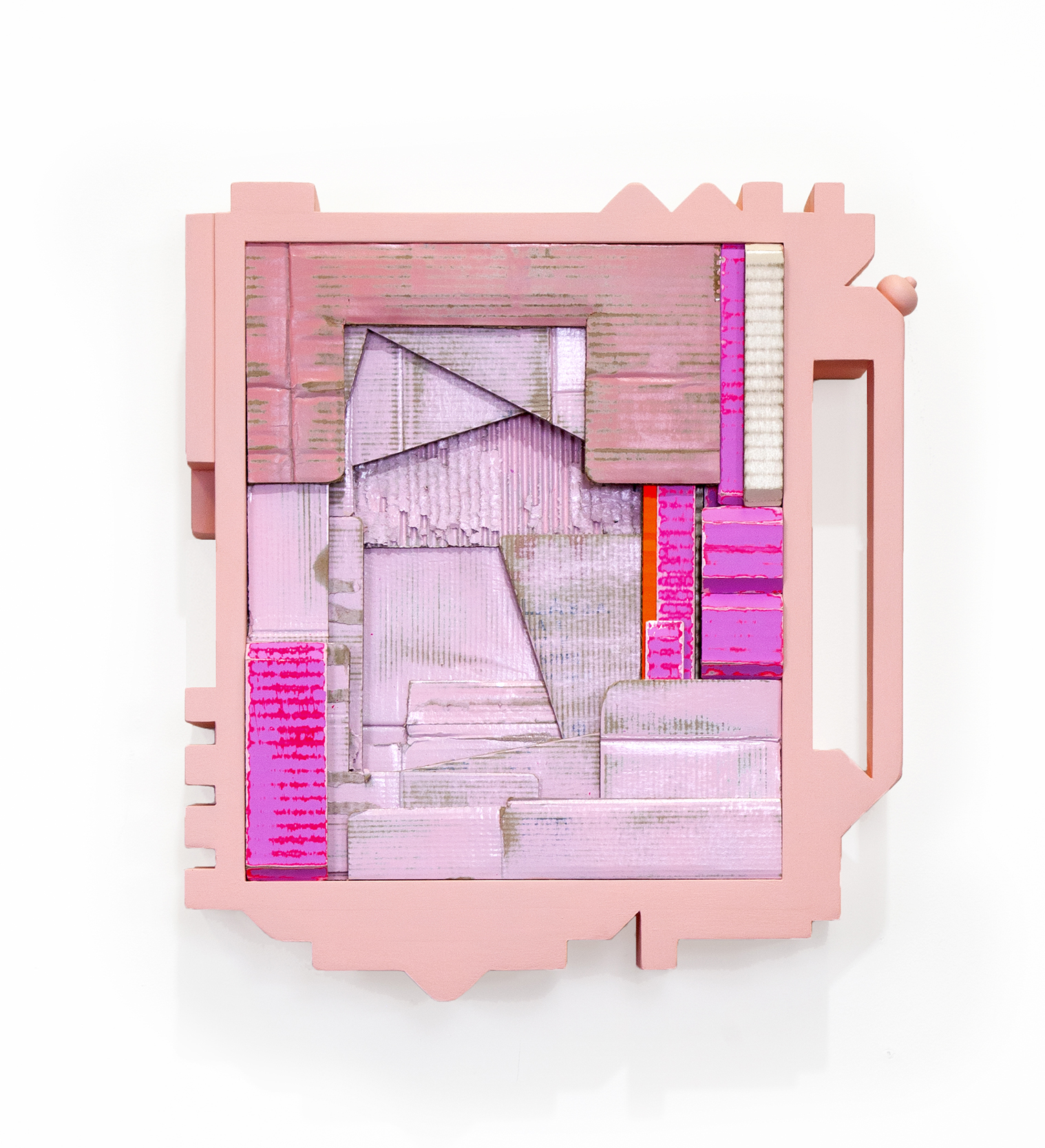
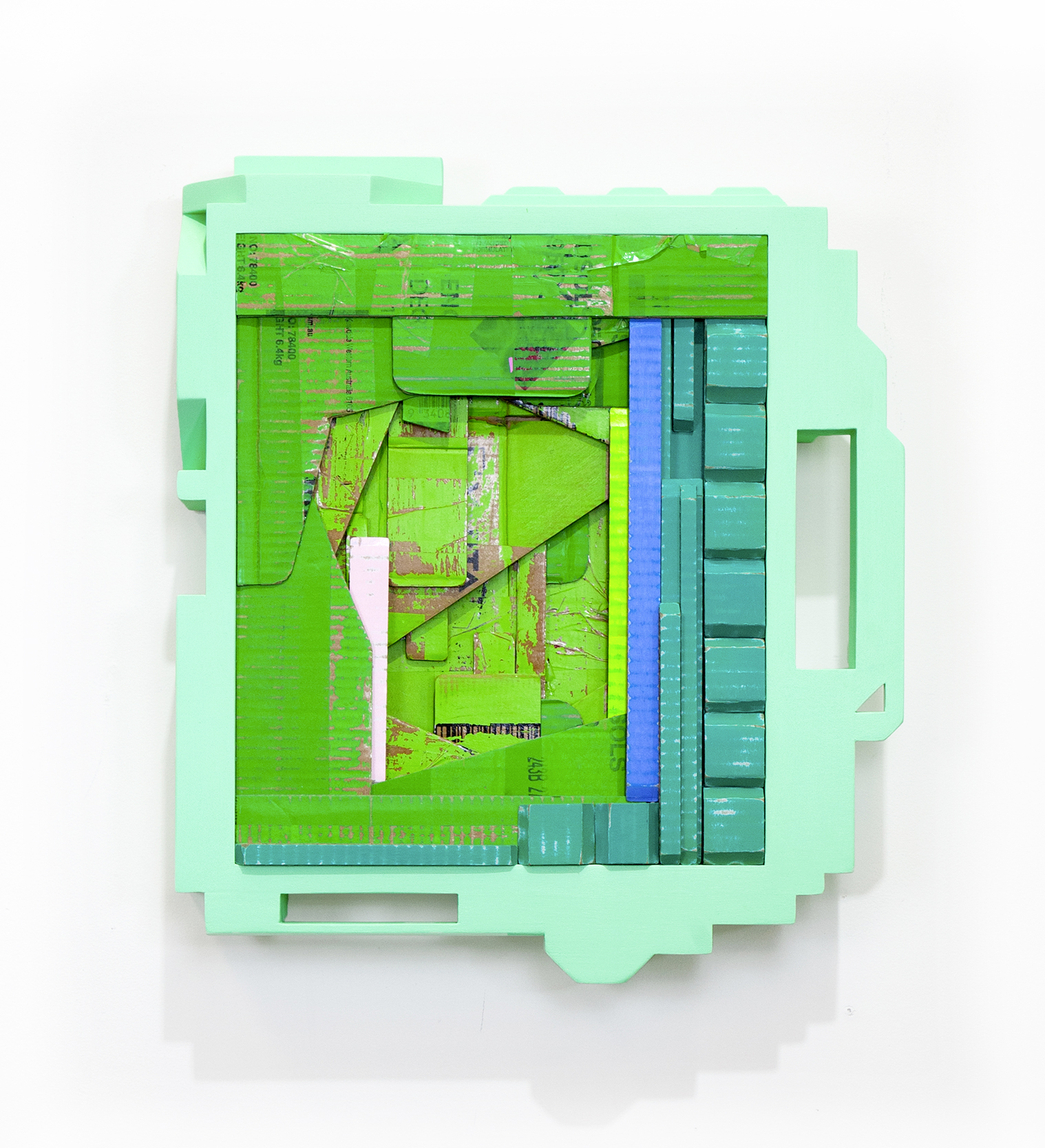
The story of humanity is defined by contradiction. We try to resist the lure of materialism but it is only through matter that we can construct our subjectivity and moral substance which, in turn, enable us to shape a better material future. Much of our life is spent trying to balance this inherent conflict between our internal and external realities but neither of these worlds can exist without the other because we can only understand something by the presence of its opposite. We cannot understand spirit without matter. We cannot understand nature without culture. We cannot understand the joy of playfulness without having encountered sombreness. The tension between counterparts is at the core of life itself. After all, it is the idea of death that makes us value life. The tangible and the intangible are inextricably intertwined and cannot be separated.
So it is, that life is a struggle to achieve balance. Whether we believe that we should consume less, that we pollute too much, that we should be more mindful, that we should recycle better, that we are too kind, too angry or not angry enough, that we trust too much or understand too little, we do our best to do good and find beauty according to the circumstances within which we operate.
Ultimately, it is through these predetermining conditions, which act as limitations, that we can better glean what we must overcome. Restrictions and mistakes are our tool to learn because we cannot distinguish what is right without wrong. They are the link to reset the password, regain access to the site of our understanding and broaden the algorithm. They are a chance to keep playing the game and do things better.”
Patrizia Biondi
Artist Statement, 2023
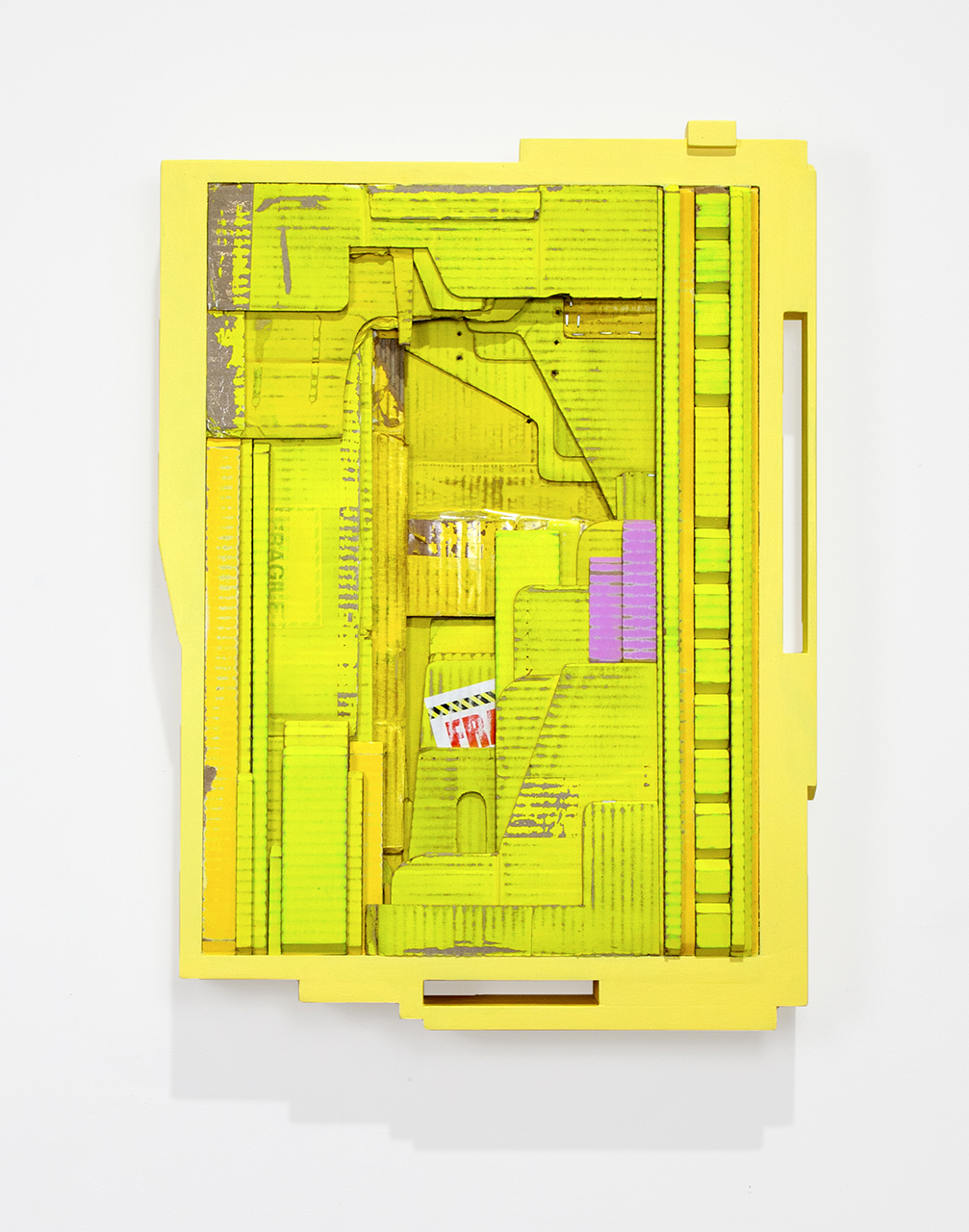
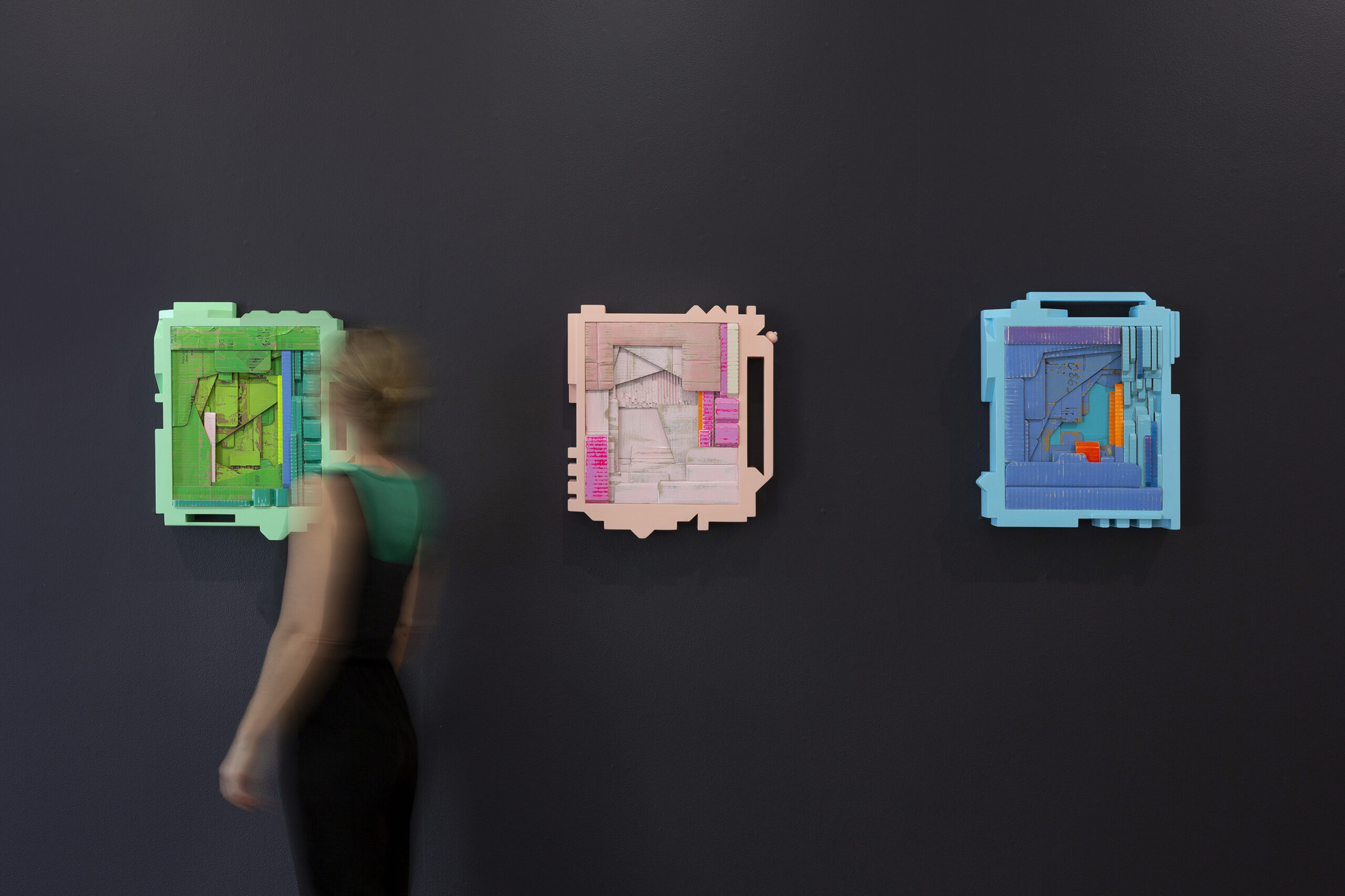
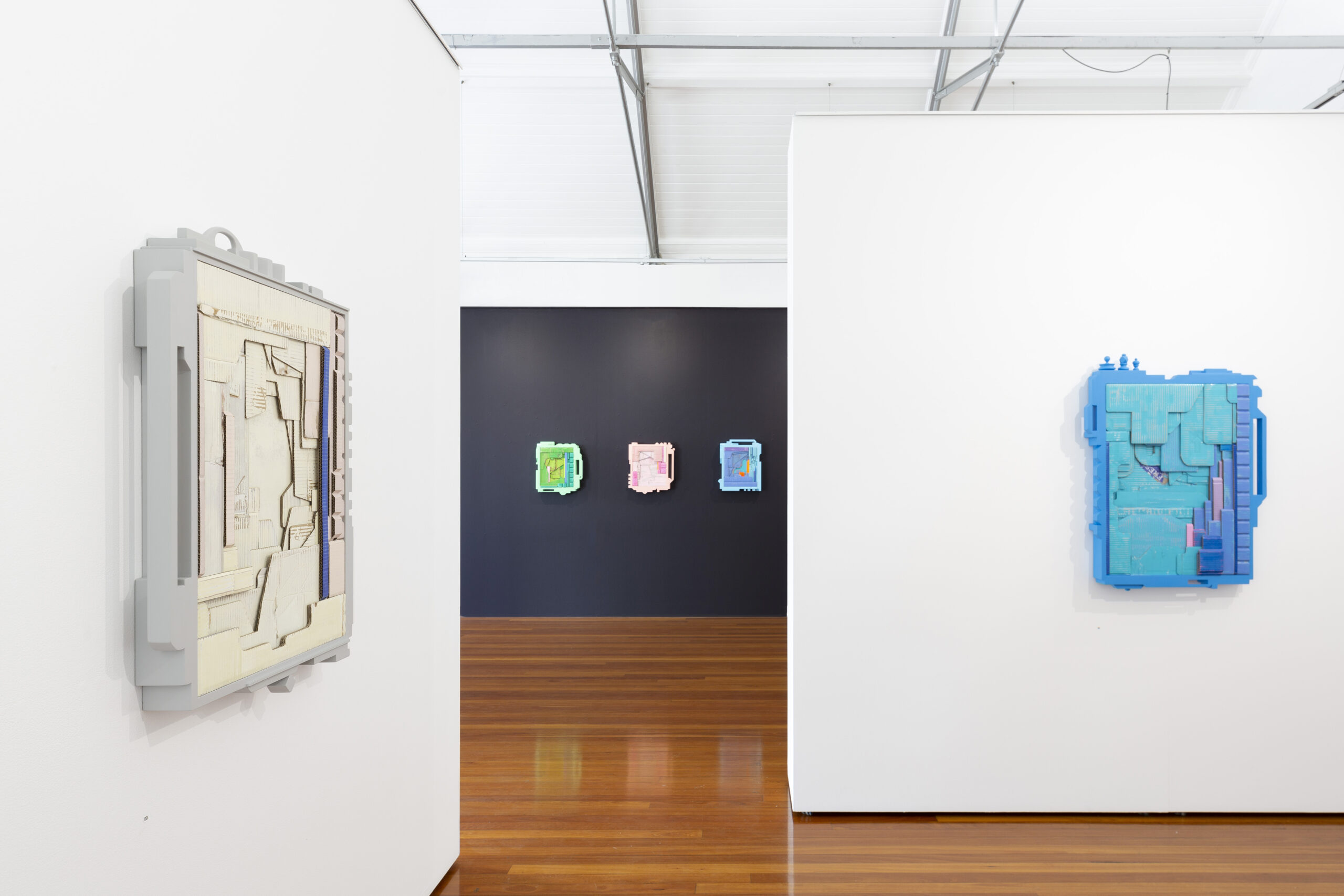
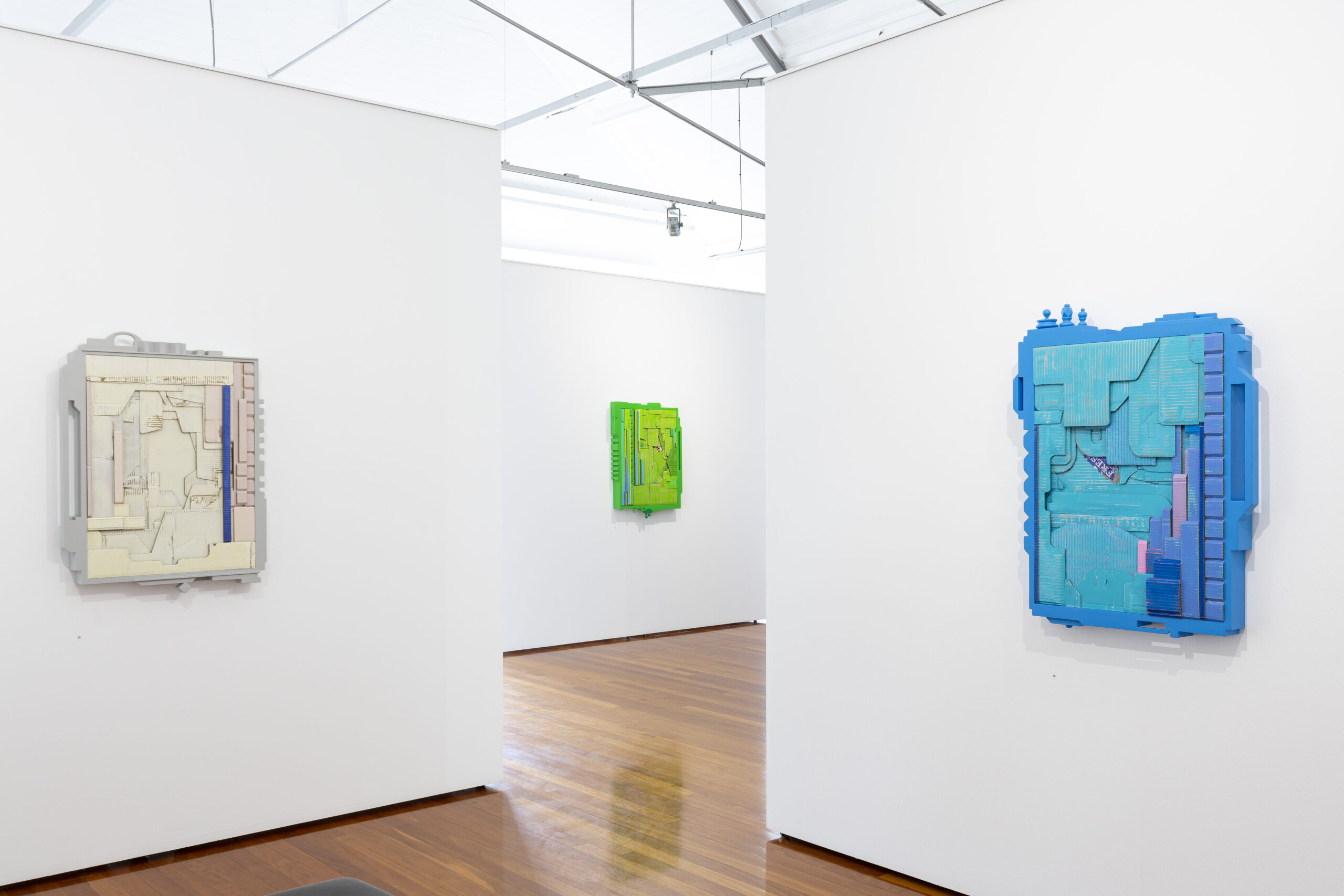
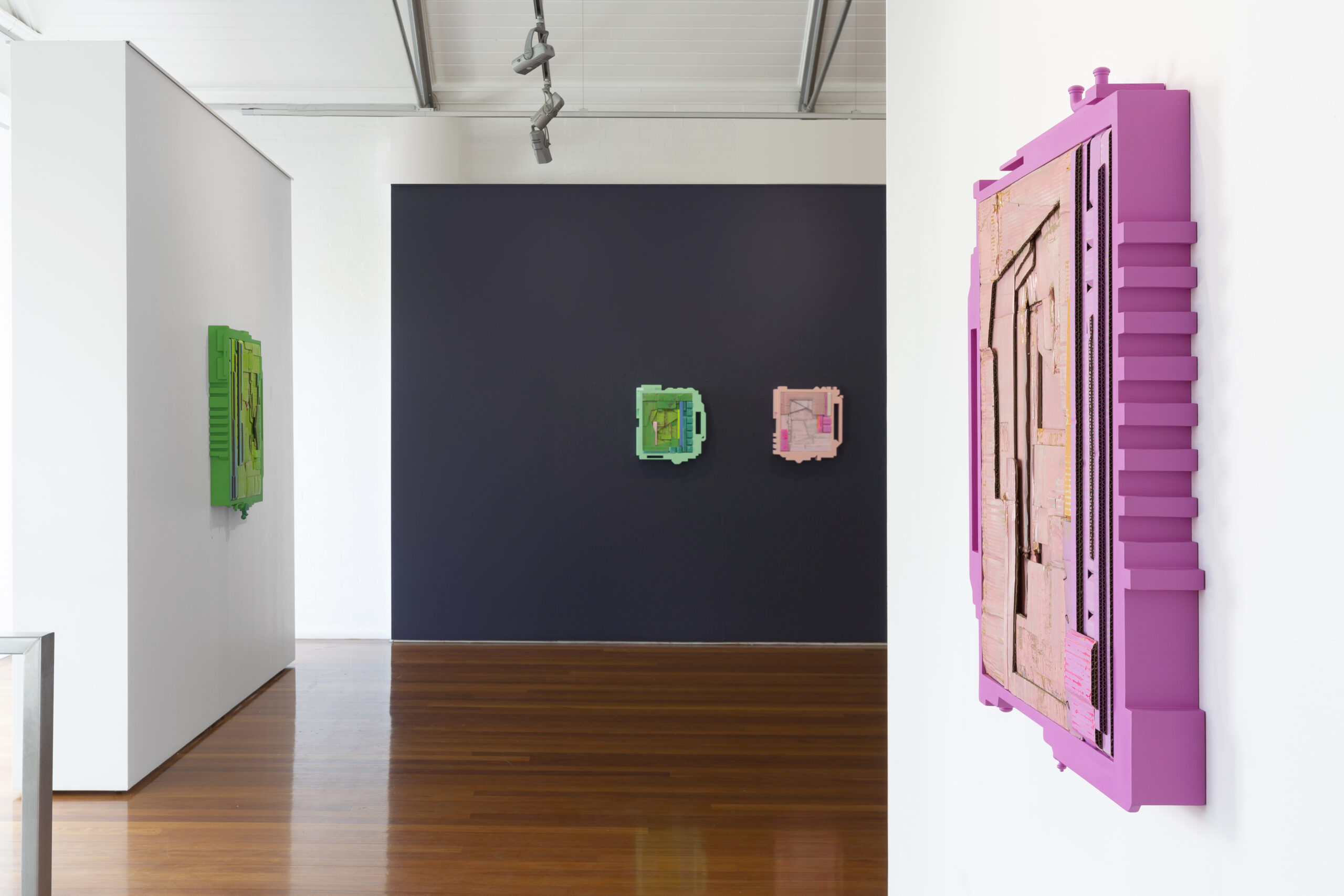
All prices are in Australian dollars and inclusive of GST.
Shipping costs not included – please contact the gallery for assistance with shipping. Prices are correct at the time of publication but may be subject to change without notice. For sales enquiries email: info@artereal.com.au
Dandelion Aurora
Timber, cardboard, paint
97 (H) x 74 (W) x 9 (D) cm
Pink Stripe Sunset
Timber, cardboard, paint
99 (H) x 76 (W) x 9 (D) cm

